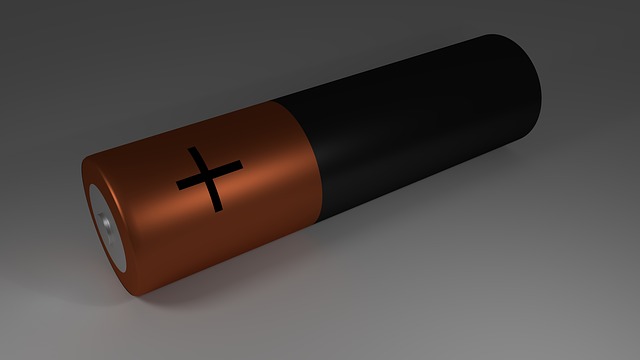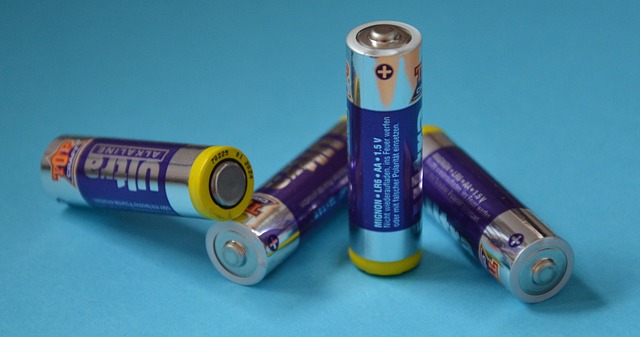18650 Protected Battery Referral
May 31, 2019 Pageview:796
18650 is a very popular battery type. It is a type of rechargeable Lithium-ion battery which has revolutionized the portable devices. From smartphone to camera, they are present in almost every single device. Even the popular baby monitors, flashlights, and fitness gadgets have 18650 batteries.
As the batteries have matured, they have found an easier way to the consumer’s hands. These cells are not standardized as the rechargeable AAs that you find in the supermarket, but they surely have value for various jobs. So, before you opt out for the 18650 batteries make sure that you pick the right ones. For that, here is everything that you need to know about these batteries.
"Protected" and "Unprotected" 18650 batteries:
We all know that Lithium-ion batteries are very powerful. But because of the power, the users should be aware of how to handle the 18650 batteries safely. With these batteries, you truly get what you pay for. Basically, the batteries are categorized into two parts, Protected and Unprotected.
Protected 18650 Batteries:
The protected Lithium-ion batteries have a small size electronic circuit integrated into the cell package. It is the circuit that protects the battery from common dangers like overcharge, short-circuit, over current, over discharge, and temperature. These batteries are safer for use in various devices as they are less likely to ignite and cause serious personal or property damage.
The components of the protected batteries include:
· PTC: Protection against indirect over current and overheating as both will automatically reset.
· CID or Pressure Valve: It will disable the cell permanently if the pressure gets too high inside the cell due to any reason.
· PCB: Depending on the design, PCB will protect the cells against over charge, over current, over discharge and reset them immediately when they are placed in charger.
Unprotected 18650 Batteries:
As the name already signifies, the unprotected batteries don’t have any integrated electronic circuit that can protect the cell packaging. As a result, the batteries have more capacity and current capability as compared to the protective cells. But the dangers also increase. The cell can easily overheat, short-circuit, and over discharge. Plus, these batteries are cheaper than the protected ones.
Which one is better, 18650 protected battery or unprotected one?
When you are in the market looking for 18650 batteries, it is the unprotected batteries that will get your attention. As these batteries don’t have the protective layer, they are cheaper. People prefer buying cheap items as compared to the expensive ones.
The thing is, the protected circuit not only make sure that the batteries don’t suffer from over discharger or overcharge, overheat or short-circuit, but they also assure that the batteries are used well for the intended product.
Even if you are buying an unprotected battery, take a few precautions otherwise you will have bigger problems on your hands. Don’t leave the battery on charge for too long. Also makes sure that the devices you are using don’t have a large power draw. Large power draw means that there are more chances of leakage and explosion.
Therefore, it is recommended that you spend a little extra from your pocket so that at least you’ll stay safe. While you are making the purchase, steer away from the cheaper version of batteries as they are manufactured by fraudulent companies. They almost appear the same as of the good quality batteries, but the truth is far from it. Weigh the battery and check the information of the battery online for verification. If you scratch the Anti-fake label from the battery, you might find a number under it which verifies its authenticity.
Don’t be a blind consumer and use the power of the internet to ensure that you are spending your money on a high-quality cell or battery.
The Technology Difficulties of 18650 Protected Batteries:
Discussing the technological difficulties, even though the Lithium-ion batteries have come a long way, still, they are vulnerable to lots of issues. The batteries fail under some circumstances when the total energy stored in the battery gets affected. Basically, a battery has a combination of chemical energy and electrical energy. By changing the electrolyte to a non-combustible material and by mitigated the stored chemical energy, the hazards can be reduced.
Other difficulties faced by 18650 Protected Batteries are explained below:
· Cell Chemistry: cell chemistry has a major impact on the severity of a cell failure. There are certain cathode materials which allow the cells to have higher energy density. And the high density is related to thermal runaway reactions. Depending on the composition of the cell and various geometric factors, it is not just cathode chemistry that affects the battery. Researchers are trying out non-flammable electrolytes for commercialization but so far, the results are not good.
· State of Charge: It is found in studies that most of the accidents related to Lithium-ion batteries happened after cell-charging. Thermal runaway is less likely to happen at low SOC. Most of the 18650 cells have provided that the ambient temperature for a severe reaction is somewhere above than 130°C. Reducing SOC significantly reduces the maximum temperature that is achieved during short-circuit which is good news.
· Heat Transfer Environment: Adiabatic insulation or high temperature increase the likelihood that an internal fault can initiate the thermal runaway and increase the energy within the cell. That’s why; a cell surrounded by conducting media can prevent heat loss and the reaction. The researchers are trying to embed cells in the material in such a way that the heat transfer is done away from the neighboring cells. Some manufacturers even came up with some suggestions that a phase change material can absorb the heat from the cells and prevent the reaction from propagation.
Work and research have been going on for a very long time to make sure that Lithium-ion 18650 batteries don’t pose a threat to any user under any circumstances. But the progress is very slow. The scientist is working hard to eliminate the issues from 18650 protected batteries too.
- Prev Article: Li-ion Battery Universal Charger Introduction
- Next Article: 18650 Battery Adapter Review
Leave Message
Hottest Categories
-
Hottest Industry News
-
Latest Industry News












